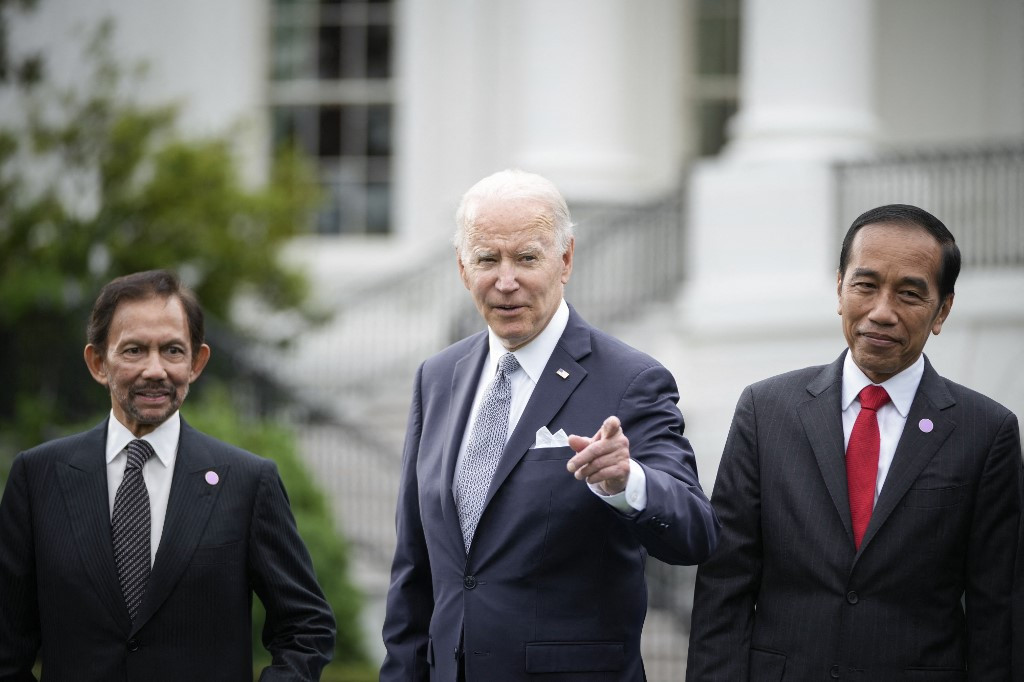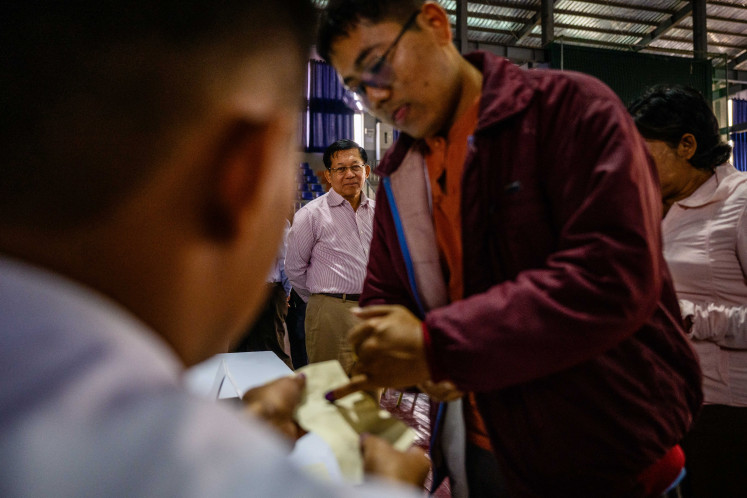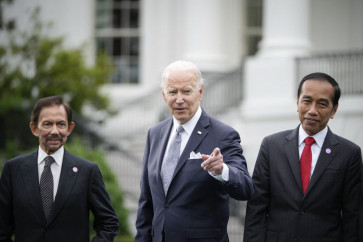Popular Reads
Top Results
Can't find what you're looking for?
View all search resultsPopular Reads
Top Results
Can't find what you're looking for?
View all search resultsSincerity of US ‘vision’ for ASEAN put to test
In the face of intensifying diplomatic efforts made by the United States to realize its ASEAN vision, once-abandoned Southeast Asian nations question the longevity of the former’s friendliness, analysts say.
Change text size
Gift Premium Articles
to Anyone
 Flanked by Sultan of Brunei Hassanal Bolkiah (left) and Indonesian President Joko "Jokowi" Widodo (right), United States President Joe Biden reacts to a reporter's question during a family photo for the US-ASEAN Special Summit on the South Lawn of the White House on May 12 in Washington, DC. (AFP/Drew Angerer)
Flanked by Sultan of Brunei Hassanal Bolkiah (left) and Indonesian President Joko "Jokowi" Widodo (right), United States President Joe Biden reacts to a reporter's question during a family photo for the US-ASEAN Special Summit on the South Lawn of the White House on May 12 in Washington, DC. (AFP/Drew Angerer)
A
mid China’s exceptional sway in Southeast Asia, the United States seeks to reaffirm its previous advances during the ASEAN-US Special Summit earlier this month, which were aimed to rekindle its once-neglected ASEAN ties whilst celebrating 45 years of the engagement.
In a webinar on Tuesday hosted by The Habibie Center, ASEAN analysts and Steve Weston, the chargé d’affaires for the US Mission to ASEAN, dissected the first-year gains and second-year challenges for US President Joe Biden, especially in terms of Southeast Asia engagement.
Weston reaffirmed the US commitment to the ASEAN-US Strategic Partnership through the five-year plan issued in 2021 to promote cooperation between the partners through existing ASEAN-led mechanisms. The plan encompasses maritime cooperation, connectivity, the United Nations Sustainable Development Goals (SDGs) 2030 and “economic and other possible areas of cooperation to contribute to peace, prosperity and development in the region”.
Joanne Lin Weiling, lead researcher at the ASEAN Studies Center at Singapore’s ISEAS-Yusof Ishak Institute, noted during her presentation that the Biden administration had seen a vast increase in engagements with ASEAN, pointing to, among many efforts, Biden’s nomination of Yohannes Abraham as the next US ambassador to ASEAN, a consular position that had been vacant for five years throughout the Donald Trump administration.
The expert also touched on key breakdowns of the US$150 million budget allocated for the region, saying that it indicated a clear message that Washington’s ASEAN engagement had been primarily motivated by an aspiration to counter China – specifically the $40 million allocated for sustainable infrastructure and another $60 million on maritime security.
“That sort of priority seems to point in one direction, which is to counter China’s maritime [expansion] in the South China Sea, and of course the Belt and Road Initiative. So that is why the US has also announced its intention to establish a Comprehensive Strategic Partnership status with ASEAN to be on par with China,” said Weiling during the webinar, while noting that she perceived the White House to have been quite transparent on this fact.
A similar inference was made by Dewi Fortuna Anwar, a research director at The Habibie Center.

















